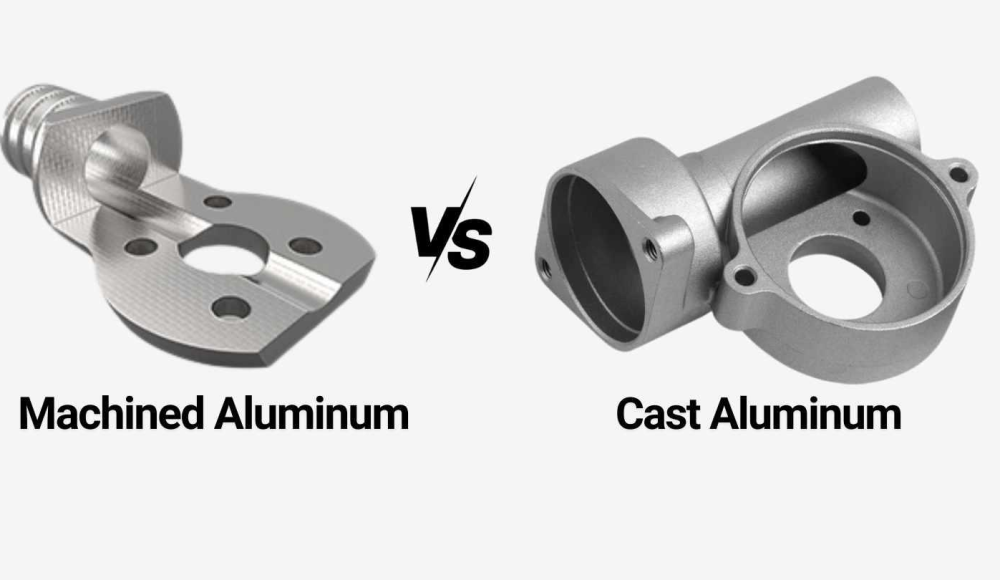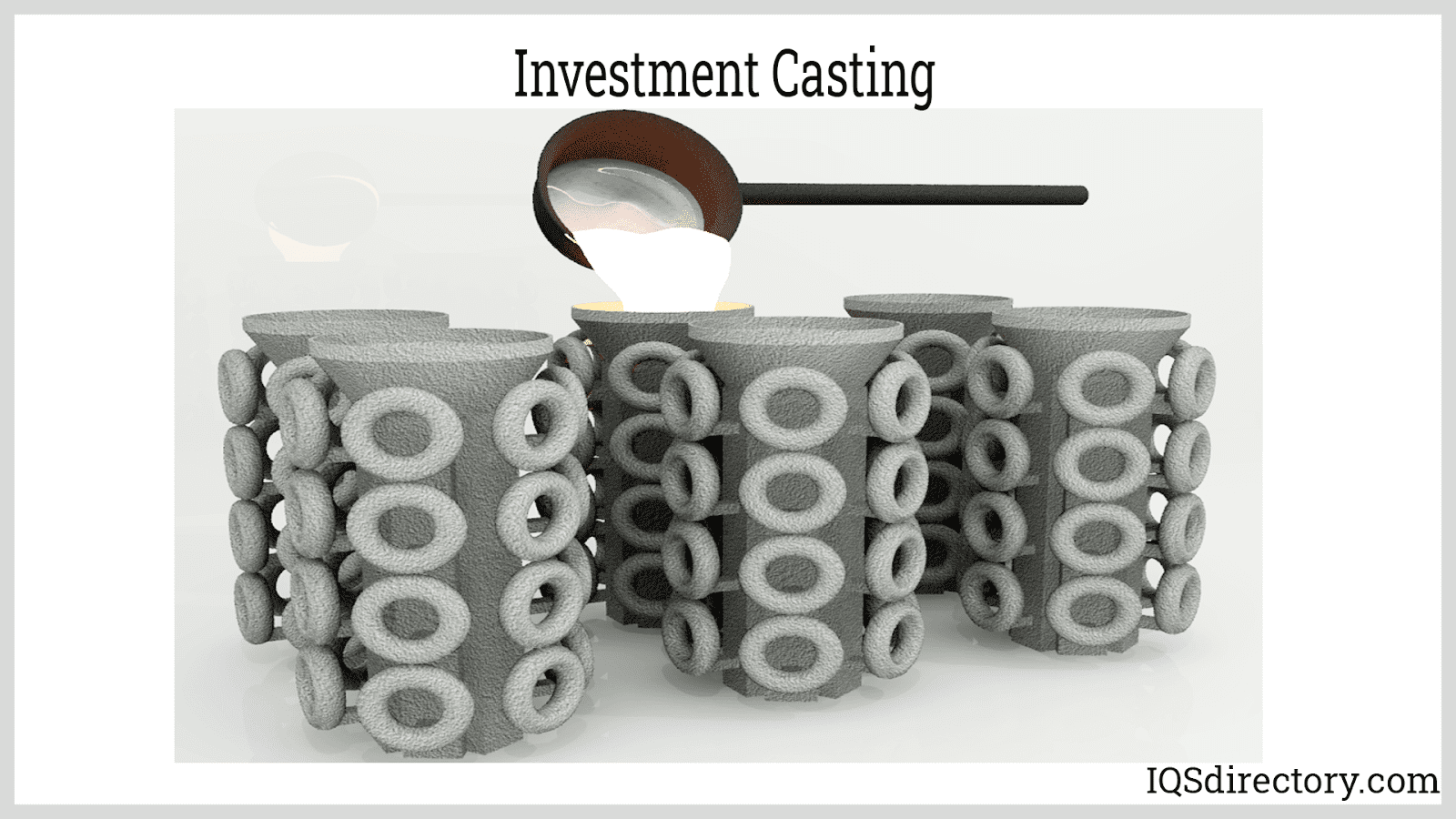Precision aluminum casting and Aluminum Foundry partnerships that advance industrial success
Wiki Article
Checking out the Duty of Foundry Services beforehand Modern Engineering Solutions
Shop solutions are vital in forming modern engineering options - Aluminum Casting Company. They link the void in between typical manufacturing strategies and the demands of modern sectors. With advancements in automation and sustainability, foundries are developing to fulfill the requirements of markets such as aerospace and vehicle. This transformation increases inquiries concerning the effects for products, processes, and future developments. What possibilities and obstacles lie in advance for shop solutions in this swiftly transforming landscape?The Advancement of Foundry Providers in Design

The integration of computer-aided style (CAD) and simulation software has revolutionized the design and manufacturing processes, allowing factories to generate complex geometries with greater precision. Moreover, the shift in the direction of eco-friendly methods has caused the fostering of greener technologies and recycling initiatives within foundries. As markets increasingly focus on modification and fast prototyping, shop solutions have actually increased their capacities, guaranteeing they stay important contributors to the engineering landscape. This evolution underscores the shop's essential function in supporting developments across numerous fields, including automobile, aerospace, and energy.
Key Processes and Strategies in Modern Foundries
Modern shops utilize a selection of key procedures and strategies that improve the effectiveness and quality of steel spreading. Amongst these, sand spreading remains prevalent due to its flexibility and cost-effectiveness. Making use of advanced technologies, such as computer-aided design (CAD) and computer-aided manufacturing (WEB CAM), permits specific modeling and production, guaranteeing high precision in element dimensions. In addition, financial investment casting is preferred for producing complex geometries with excellent surface area coatings.Furthermore, automation and robotics boost manufacturing speed and uniformity while minimizing labor expenses. Strategies like additive production are increasingly integrated to produce detailed molds and cores, consequently minimizing material waste. The application of thermal analysis help in enhancing spreading procedures by anticipating and managing solidification behavior. Jointly, these procedures and methods exemplify exactly how modern-day shops are adjusting to fulfill the needs of modern design difficulties, guaranteeing exceptional item top quality and functional efficiency.
The Importance of Products Selection in Factory Providers
Selecting the ideal materials is essential in foundry solutions, as it directly affects the mechanical properties, toughness, and total performance of the end product. Different materials have unique attributes, such as tensile toughness, deterioration resistance, and thermal security, which have to straighten with the designated application of the cast elements. Steels like aluminum and steel are frequently selected for their strength-to-weight ratio, while alloys can enhance specific efficiency attributes.The option process involves taking into consideration aspects such as cost, schedule, and manufacturability, which can significantly affect task timelines and budget plans. Furthermore, innovations in material scientific research make it possible for the growth of cutting-edge compounds and specialized alloys that satisfy emerging engineering obstacles. A comprehensive understanding of product residential properties and their implications is necessary for designers and shop experts to attain successful results in their projects. This cautious option process eventually enhances the dependability and effectiveness of the end items.
Foundry Services in Aerospace and Automotive Applications
Foundry solutions play an important duty in the aerospace and vehicle sectors, where precision and performance are extremely important. These markets count heavily on the production of facility components that must satisfy strenuous high quality requirements and withstand severe problems. Shops give vital solutions such as casting, machining, and completing, ensuring components are lightweight yet robust, important for improving fuel effectiveness and safety.In aerospace, factory solutions add to the production of turbine blades, engine elements, and architectural components, all of which demand detailed layouts and high-performance materials. Likewise, in the automotive field, shops provide engine blocks, chassis elements, and transmission situations, concentrating on longevity and weight decrease.
Advanced factory techniques, including additive manufacturing and accuracy casting, are increasingly employed to fulfill the details demands of these industries. important source By providing customized options, foundry solutions assist drive technology and preserve affordable benefits in the fast-evolving aerospace and automobile landscapes.
Advancements Driven by Shop Capabilities
Countless technologies in engineering are sustained by the innovative capacities of factory services. These services allow the production of complex geometries and high-performance products that are crucial for modern-day applications. Additive production, frequently known as 3D printing, has actually seen substantial advancements via shop methods, permitting for the rapid prototyping of complex layouts. In addition, the capacity to cast light-weight alloys has actually revolutionized industries such as aerospace and vehicle, resulting in her response boosted fuel efficiency and efficiency.Additionally, shops are increasingly integrating clever innovations, such as automation and information analytics, to improve manufacturing efficiency and top quality control. These developments not just minimize waste but likewise allow personalization at range, meeting the particular requirements of customers. By leveraging sophisticated foundry abilities, engineers can explore new frontiers in product style and functionality, inevitably driving progression throughout numerous fields and establishing a foundation for future improvements.
Future Fads in Foundry Services and Design Solutions
The future of factory solutions is formed by emerging patterns such as lasting production methods, which prioritize ecological obligation. Automation and smart modern technologies are readied to improve effectiveness and precision, while raising personalization and versatility will fulfill the progressing needs of customers. As these fads advance, they will redefine the landscape of engineering services in the factory market.
Lasting Production Practices
As industries progressively focus on environmental obligation, lasting production practices within shop solutions are coming to be necessary to modern design services. These practices concentrate on reducing waste, reducing energy consumption, and utilizing eco-friendly products throughout the manufacturing process. By applying strategies such as recycling scrap steel and optimizing melting processes, foundries can especially lower their carbon impact. Furthermore, the adoption of life cycle assessments permits manufacturers to examine the ecological effect of their items from beginning to disposal. Collaborating with vendors committed to sustainability better improves the performance of these initiatives. Eventually, welcoming sustainable production not just lines up with worldwide environmental goals however also promotes advancement and competition in the quickly evolving design landscape.Automation and Smart Technologies
While numerous markets are welcoming technical developments, shop services are experiencing a significant improvement via automation and clever innovations. The assimilation of robotics and automated systems enhances manufacturing efficiency, minimizes human error, and speeds up the production process. Smart modern technologies, such as IoT and AI, make it possible for real-time surveillance and anticipating upkeep, which enhance functional performance and minimize downtime. These developments help with data-driven decision-making, enabling factories to respond quickly to market needs and enhance product quality. Additionally, automation reduces labor costs and improves work environment safety by dealing with dangerous tasks. As foundry solutions remain to adopt these innovations, they are poised to redefine design services, bring about boosted competition and sustainability in the manufacturing sector.Personalization and Versatility Trends
Arising patterns in foundry solutions progressively highlight customization and versatility to meet special consumer needs. This shift shows a wider need for customized engineering solutions that adapt to details job needs and market criteria. Firms are buying innovative modern technologies, such as additive manufacturing and digital modeling, allowing them to produce customized components this post efficiently and cost-effectively. Consequently, shops are moving away from one-size-fits-all strategies, offering clients the capacity to customize styles and products in real-time. Additionally, cooperation in between design teams and shop solutions is ending up being much more incorporated, cultivating advancement and speeding up time-to-market. This trend not only enhances item efficiency but also sustains sustainability by lessening waste through exact production processes.Often Asked Inquiries
What Are the Normal Expenses Linked With Foundry Providers?
Common prices connected with shop services consist of product expenses, labor fees, tools usage fees, and overhead expenses - Aluminum Foundry. These expenses can differ widely based on job intricacy, quantity, and particular demands of the design remedy entailedHow Lengthy Does the Foundry Process Typically Take?
The foundry procedure normally takes anywhere from numerous weeks to a couple of months, relying on variables such as complexity, product demands, and manufacturing quantity, which can significantly influence timelines and general job shipment.What Industries Benefit Many From Factory Solutions?
Industries such as auto, aerospace, and building and construction advantage substantially from shop solutions. These sectors rely on precision casting and steel construction to develop complex components, enhancing item performance and functional performance in their corresponding applications.What Accreditations Should Factories Have?
Factories need to possess certifications such as ISO 9001 for quality administration, ISO 14001 for environmental administration, and particular industry qualifications like AS9100 for aerospace or IATF 16949 for vehicle, guaranteeing compliance and quality control.Exactly How Do Foundries Ensure Quality Assurance in Their Processes?

Shop solutions are essential in shaping modern engineering solutions. As design self-controls have progressed, the role of factory services has actually transformed considerably to fulfill advancing sector needs. As industries increasingly prioritize personalization and quick prototyping, factory solutions have increased their capabilities, guaranteeing they stay essential contributors to the engineering landscape. As industries increasingly prioritize environmental obligation, lasting production practices within shop services are coming to be essential to modern design services. In addition, collaboration in between engineering teams and foundry solutions is becoming more incorporated, promoting technology and increasing time-to-market.
Report this wiki page